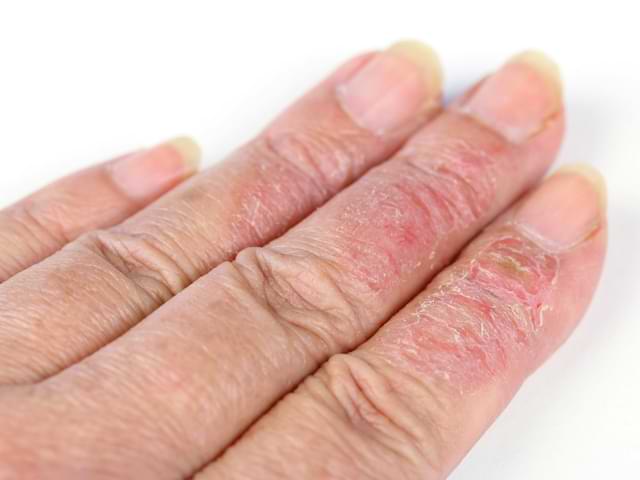Eczema is a skin condition that causes inflamed, itchy, cracked, and rough patches of skin. It is most frequent in children, but it can happen at any age. Eczema is a chronic condition that flares up from time to time. Some people grow out of this ailment, while others might have it for the rest of their lives. Your immune system responds to relatively harmless substances in your environment if you have eczema. As a result, there is continual or persistent inflammation. The irritation affects your skin over time, making it red and irritable.
Causes of Eczema:
Healthy skin aids in moisture retention and guards against bacteria, pathogens, and allergens. Eczema is caused by a genetic mutation that impairs the skin to provide this barrier. It permits environmental factors, allergens, and pollutants to damage your skin. Food allergies might play a role in developing eczema in some children.
- Some bacteria, viruses, and fungi.
- One can potentially aggravate eczema in dynamic weather conditions.
- The consumption of dairy products can trigger eczema.
- An indirect cause and aggravation of eczema can be stress and anxiety.
- Symptoms of eczema may exacerbate in females due to hormonal changes, particularly during pregnancy and menopause.
Symptoms of Eczema:
Symptoms and indications of eczema vary considerably from person to person and might manifest:
- Dehydrated skin.
- Intense itching.
- Red and brown skin rashes.
- Fluid leaks when rashes are scraped.
- Scaly and cracked skin.
- Pain and swelling over scratched skin.
Gut-Eczema connection:
People with eczema have different types of bacteria in their gut than people who do not have eczema, and they sometimes have inflammation in their stomach. Many factors can influence gut microbiome colonization, with dietary style having the most significant influence on gut bacteria colonization in childhood life. It has been reported that One can alleviate eczema symptoms by altering the gut bacteria composition or lowering inflammation in the gut.
Managing eczema through diet:
- Allergies are most commonly caused by consuming dairy products, wheat, soy, fish, gluten, cocoa, and citrus. Eliminating certain foods can help you determine if they cause your eczema. One should do it with the assistance of a doctor or a nutritionist, who can advise you on substitute items ensuring that you do not end up deficient in any essential nutrients.
- Probiotics have been discovered to be beneficial for building a robust immune system, consequently alleviating eczema. Yogurt, kefir, kombucha, sauerkraut, pickles, miso, tempeh, kimchi, sourdough bread, and various cheeses are examples of fermented foods that naturally contain probiotics or have probiotics added to them.
- Inflammation is the most significant factor contributing to the development of eczema. Following an anti-inflammatory diet can be effective in managing eczema. Inflammation is caused by elevated insulin levels, which is caused by consuming highly processed carbs and foods with higher sugar content. Consuming whole grains and vegetables can keep your insulin levels stable and reduce inflammation as well. Getting the appropriate fat balance in your diet might also help with inflammation and eczema.
- Maintaining a balance of vitamins, minerals, and antioxidants in your diet can benefit your skin’s condition. The vitamins and minerals listed below are very beneficial for eczema:
- Zinc is found in pumpkin seeds, lean red meat, dark chocolate, and seafood.
- Vitamin C is abundant in citrus fruits and vegetables and rosehip.
- Vitamin E is found in avocado, pine nuts, sunflower seeds, almonds, and dried apricots.
- The best source of vitamin D is sunlight, but you can include vitamin D supplements to avoid its deficiency in winters.
One can very well manage eczema by the nutritional regime and by altering your diet. The naturopaths and nutritionists at Fantastic Life educate you for a better and healthier lifestyle.

